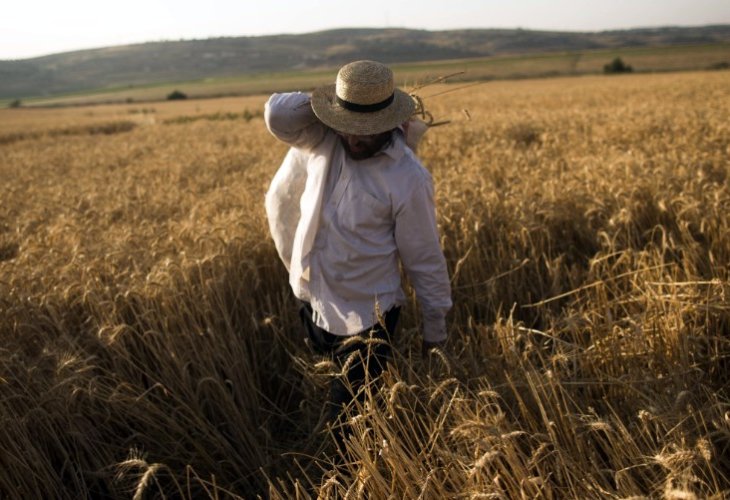What is Tosefet Shevi'it?
Understanding the pre-Sabbatical year restrictions: When does Tosefet Shevi'it begin, what purpose does it serve, and when is tree planting prohibited before the Shemitah year? A concise halachic guide for the Shemitah year 5775

Tosefet Shevi'it
According to the Torah, the Sabbatical year begins on the first day of Tishrei and ends on the twenty-ninth day of Elul. Beyond that, there is a law given to Moses at Sinai that when the Temple stood, working the land was prohibited thirty days before the Sabbatical year. This law is called "Tosefet Shevi'it" (Sabbatical Extension), and the Sages further prohibited: - Plowing in grain fields: from Passover before the Sabbatical year, and Plowing in orchards: from Shavuot before the Sabbatical year.
Today, the law of "Tosefet Shevi'it" is not fully practiced, so most work is permitted until Rosh Hashanah itself, though one should add a small amount of time on the eve of Rosh Hashanah as with all extensions. Therefore:
Actions prohibited today under the law of "Tosefet Shevi'it": (dates mentioned are for the year preceding the Sabbatical year)
It is forbidden to plant fruit trees 44 days before the start of the Sabbatical year, meaning from the 16th of Av, if they are not in a soil block before the 15th of Av. The reason for this prohibition is that someone planting close to the Sabbatical year might be suspected of having planted during the Sabbatical year itself.
Some are strict not to sow seeds three days before the Sabbatical year, to prevent germination from occurring during the Sabbatical year, while others permit sowing until the 29th of Elul. To avoid this dispute, it is best to complete sowing before the Sabbatical year so that germination also occurs before the Sabbatical year.
It is forbidden to sow vegetables before the Sabbatical year if they will sprout during the Sabbatical year. Each vegetable has a different timeframe; for example, carrots should be sown two weeks before the Sabbatical year. Therefore, vegetables should be sown up to two weeks before the Sabbatical year, so that seed absorption and sprouting occur before the Sabbatical year and are not prohibited as aftergrowths (sefichim).
Some say that even flowers and roses, which are grown only for fragrance and not for eating, should not be sown close to Rosh Hashanah, but rather sown early enough to sprout before the Sabbatical year. Others disagree and permit sowing them right up until the Sabbatical year, meaning until the 29th of Elul, and this is the main ruling in practice.
Work that is permitted during the Sabbatical year in cases of significant loss should preferably be done before the Sabbatical year rather than during it.
Actions permitted under the law of "Tosefet Shevi'it": (dates mentioned are for the year preceding the Sabbatical year)
It is permitted to plant fruit trees before 44 days before the Sabbatical year, meaning until the 15th of Av, even if they are not in a soil block.
It is permitted to plant fruit trees until the 29th of Elul if two conditions are met:
They were in a soil block before the 15th of Av.
The tree can survive with this soil block for 14 days outside the ground (the reason for this allowance is because such a seedling does not need additional days to take root).
According to the basic law, it is permitted to plant non-fruit trees, ornamental bushes, spices, and the like until the 29th of Elul. Nevertheless, ideally one should plant them by the 15th of Elul near sunset, meaning up to two weeks before the Sabbatical year (so that they take root before the Sabbatical year).
It is permitted to graft onto a tree or rootstock (planted before the 15th of Av) until the 29th of Elul, though ideally one should complete grafting so that it takes root before Rosh Hashanah.
According to the basic law, it is permitted to sow flowers and roses intended only for fragrance until the 29th of Elul. However, it is advisable to be strict and sow before the 29th of Elul, so that the seeds take root before the Sabbatical year.
If someone violated the prohibition and planted before the Sabbatical year - it is forbidden for him to eat these vegetables because they are considered aftergrowths (sefichim).
-If a non-Jew planted after the 16th of Av before the Sabbatical year, without the owner's knowledge, one should consult with a Torah scholar.
For any questions, consult with Torah scholars.

